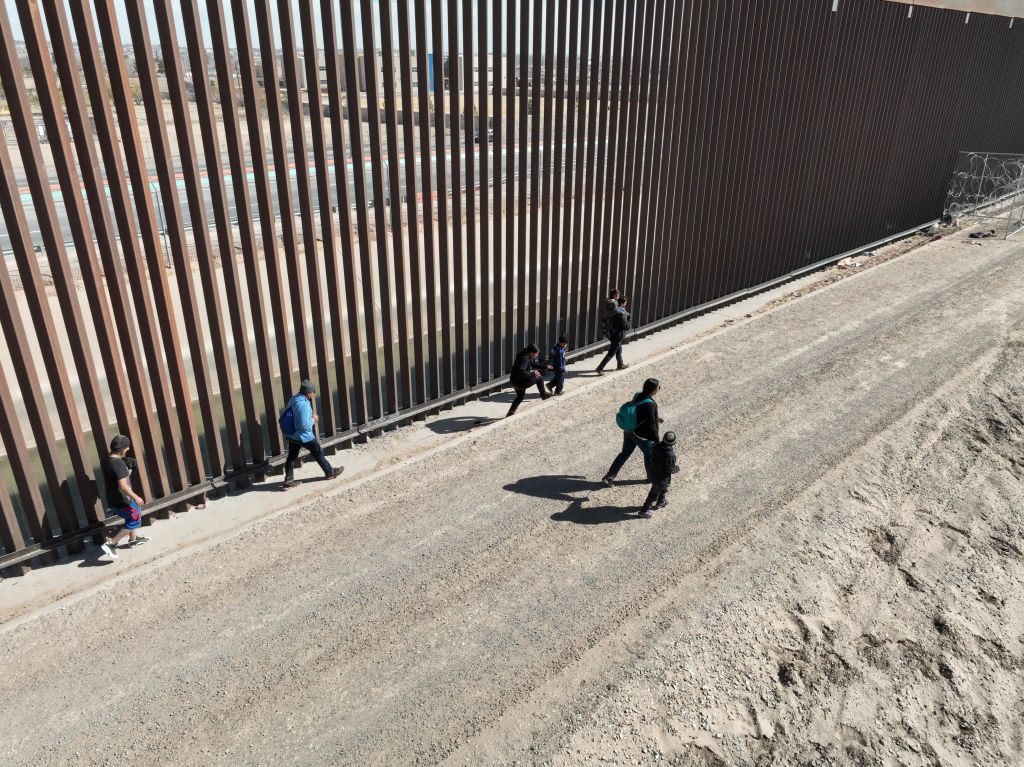The White House is making changes to its group of immigration advisors, adding a top border enforcement policy leader and a development expert to its team.
Blas Nuñez-Neto moves to the White House from the Department of Homeland Security (DHS), where he was the assistant secretary for border and immigration policy and played a key role in a failed bipartisan Senate deal on immigration.
Marcela Escobari has exited her position at USAID, where she was the head of the Bureau for Latin America and the Caribbean.
The dual hires reflect the Biden administration’s approach to immigration, emphasizing restricting migration at the border while opening legal pathways and heavily investing in development in Latin America to reduce migratory flows.
Nuñez-Neto, who came to the U.S. from Argentina as a child, has been influential in creating policies he sees as a middle ground on immigration.
His stance on immigration enforcement and border security has garnered little praise from immigrant advocates, and some of the policies he’s guided have caused tension between advocates and the Biden administration.
He aided in developing the Biden administration’s response to the lifting of Title 42, advocating for asylum conditions similar to those used under former President Trump, paired with a program to allow temporary entry for migrants from Cuba, Nicaragua, Venezuela and Haiti with a U.S.-based financial sponsor.
He also assisted in negotiating the resumption of deportation flights to Venezuela.
In the Senate border negotiations, he was part of Secretary of Homeland Security Alejandro Mayorkas’s team, providing technical groundwork for negotiators to craft the defunct bill’s crackdown on asylum rights.
White House spokesperson Angelo Fernández Hernández said, “We are excited for DHS Assistant Secretary Blas Nuñez-Neto to join the White House and continue his work implementing the Administration’s vision in border security and immigration spaces.”
“The Administration will continue to work to fix the broken immigration system and urge Republicans in Congress to pass the historic bipartisan border security agreement that they rejected for partisan political reasons.”
At the DHS, Nuñez-Neto played a crucial role in addressing migration policy domestically and internationally, frequently appearing before Congress and in international negotiations.
Mayorkas stated, “Blas Nuñez-Neto is a remarkably talented and dedicated colleague, bringing unique and invaluable perspective to some of the most complex issues we face.”
Escobari’s role in the Biden administration has been less public than Nuñez-Neto’s, but the Bolivia-born development professional has established a substantial body of work on both foreign and domestic issues.
At USAID, she led the department for Latin America and the Caribbean, a position she also had in 2016 under former President Obama.
The agency described her responsibilities as “leading USAID’s efforts to promote a collaborative, regional response to the significant displacement of seven million people across” the region, as well as addressing the “economic downturn” deeply felt across Latin America following the COVID pandemic.
“We often make a distinction between so-called developed and developing, between the Global North and Global South. … But in reality, there is no clear boundary when it comes to the devastating effects of poverty,” Escobari wrote in her testimony to the Senate Foreign Relations Committee for confirmation to her post in 2021.
“The need for inclusive, sustainable growth is as real in Appalachia as it is in Antigua.”
Escobari is taking the place of Katie Tobin, a National Security Council immigration adviser who in January announced her departure from the administration.
Between her two periods at USAID — during the Trump administration — Escobari was a fellow at the Brookings Institution, where she conducted extensive research on modernizing the American workforce.
At USAID, Escobari encountered internal difficulties, including the response to a 2021 Office of Inspector General report that found the agency had succumbed to undue political pressure from the Trump administration in its efforts to provide humanitarian aid to Venezuela.
USAID also faced external challenges in the Americas, including from U.S. allies like Mexico, where President Andrés Manuel López Obrador has harshly criticized the agency for “financing organizations openly against the legal and legitimate government I represent,” in reference to USAID’s funding of anti-corruption civil society groups.
In her new role, Escobari will inevitably engage with López Obrador’s government or policy decisions, as the Mexican president is a key player in regional migration.
On Escobari’s area of expertise, development, the Biden administration has openly embraced López Obrador’s rhetoric emphasizing a humanitarian approach, though the U.S. has valued López Obrador’s cooperation on Núñez-Neto’s area — enforcement.









